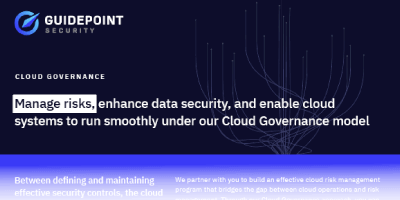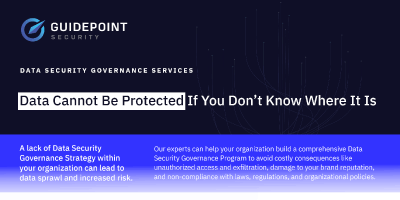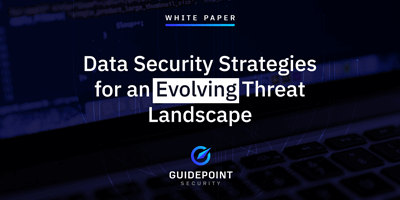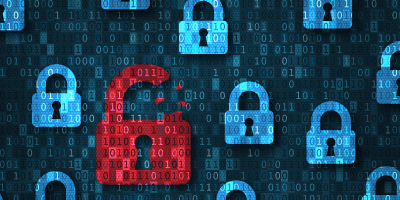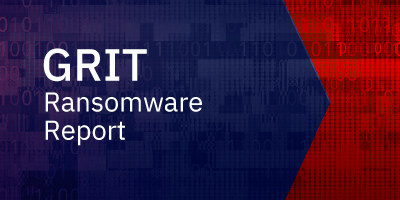Endpoint Detection & Response (EDR) solutions continuously monitor endpoints to provide visibility, insight, and resolution to perimeter threats.
What does EDR stand for?
EDR, meaning Endpoint Detection & Response, is a set of tools and processes that give organizations visibility, insight, and resolution to incidents at the endpoint level. EDR technology helps organizations proactively hunt for threats at the endpoints of a network and act to shorten resolution time and eliminate threats.
What is an endpoint?
An endpoint is a device connected to a network. This includes PCs, laptops, smartphones, servers, and Internet of Things (IoT) devices.
Why do I need to protect my endpoints?
Endpoints are an increasing threat as work is more hybrid, remote, and distributed. Organizations need to monitor and secure workforces as endpoint devices increase in volume, variety, and use, driven by hybrid and remote working.
What are the capabilities of EDR?
Gartner defines EDR as solutions with four key capabilities: detect security incidents; contain the incident at the endpoint; investigate security incidents and provide remediation guidance.
Steps in EDR include:
- Continually monitor endpoints across a network
- Detect suspicious activity
- Confirm the threat
- Take action to resolve it
Actions include create an alert, isolate hosts, delete files, kill a process, initiate scans, or restore and roll back a system.
If we have anti-virus or anti-malware, do we need EDR?
Yes, because anti-virus and anti-malware solutions are reactionary, protective defenses. EDR is a more sophisticated set of tools and processes that proactively analyze and monitor unusual activity and advanced threats and then manage alerts, investigations, and relevant responses. These advanced capabilities mean EDR protects against threats that may pass anti-virus, anti-malware, and other more traditional and less sophisticated security technologies.
Why is EDR important?
EDR is crucial because it is continuous and proactive. It goes beyond a reactive threat defense approach. It continuously hunts for sophisticated threat actors and their tactics, techniques, and procedures (TTPs). After detection, EDR confirms a threat and then acts on it, drastically minimizing the time to incident response. This allows EDR to prevent or reduce ‘dwell’ time: the time that an attacker has access to a network, and to stop security events from becoming security breaches.
Who needs EDR?
Any organization that wants to minimize cyber threats and shorten the time to resolution should have an endpoint security solution in place. EDR is increasingly important when there are more endpoints: a mobile or hybrid workforce; or when data needs to be secure: including mobile sales teams, company executives, and employees handling customer data or personally identifiable information (PII).
How important is EDR?
The visibility, control, and constant monitoring of endpoint threats through EDR are vital as organizations continue to add new devices, manage virtual workforces, and increase the size of their perimeter.
Does EDR use AI?
Yes, EDR is supported by artificial intelligence (AI) and machine learning (ML). These technologies allow EDR to deliver advanced monitoring capabilities, analyze endpoint data, and user behavioral analytics, and drive policies and processes to automate threat handling.
What are the benefits of Endpoint Detection & Response (EDR)?
The benefits of Endpoint Detection & Response (EDR) are:
- Identify threats at the endpoint – before they access your network
- Isolate threats in the cloud - take them off your network immediately
- Automate policies and processes for threat handling
- Continuous cyber threat intelligence updates
- Minimize downtime
- Prevent security events from becoming security breaches
- Allow end users and workforce to work remotely securely
- Minimize risk
Identify threats at the endpoint – before they access your network
With EDR protection, organizations have real-time monitoring and advanced analytics that help identify and neutralize threats right at the endpoint. This early identification and neutralization can prevent potential breaches and intrusions from occurring and allows organizations to respond swiftly and effectively, minimizing the risk of extensive damage and maintaining robust security.
Isolate threats in the cloud - take them off your network immediately
EDR tools tools immediately isolate threats in the cloud and away from the network, enhancing cybersecurity by:
- Identifying potential threats at endpoints.
- Isolation moving confirmed threats to a secure cloud environment.
- Preventing malware spread and securing sensitive data.
This process ensures uninterrupted business operations by maintaining continuous network safety and minimizing recovery time and costs. Through real-time monitoring and rapid response, EDR cyber security tools can prevent extensive damage and maintain robust security.
Automate policies and processes for threat handling
When it comes to EDR, automation is essential as it streamlines an organization's threat response. Automation ensures that threats are immediately responded to without the need for manual intervention, guaranteeing a consistent and efficient response to threats. Organizations benefit from this consistent, rapid, and methodical response as they can reduce their response time without having to worry about human error getting in the way of threat response.
Continuous threat intelligence updates
EDR tools are regularly updated with threat intelligence and therefore adequately equip EDR systems to proactively protect organizations from known and emerging cyber threats. Regular updates to EDR tools also allow EDR systems to more effectively identify, analyze, and respond to threats, ensuring robust and up-to-date protection for organizations against a diverse and constantly changing array of cyber risks.
Minimize downtime
EDR tools use their proactive and reactive features to reduce downtime and ultimately minimize the period of time an organization's systems are compromised. By minimizing downtime, EDR tools offer organizations substantial economic and operational advantages; uninterrupted business operations lead to maintained productivity and as little revenue lost as possible. EDR's capability to keep systems operational and quickly restore them post-incident is invaluable in today's fast-paced business environment.
Prevent security events from becoming security breaches
EDR tools like those we offer at GuidePoint Security can help reduce your organization's attack surface by halting suspicious activities in their tracks. Our proactive approach to security continuously monitors your endpoints for threats and keeps minor security events from escalating into disasters. With our EDR tools, you can also minimize your organization's overall vulnerability to attacks and maintain its security posture.
Allow end users and workforce to work remotely securely
The general trend toward remote work is amplifying the need for robust security solutions like EDR which, as a part of endpoint protection platforms, is specifically tailored to work well in remote environments. It offers features such as VPN access to ensure remote employees have safe connectivity and excels in keeping track of endpoint activities.
Minimize risk
Comprehensive EDR tools like ours can significantly reduce your organization's overall cyber risk with regular monitoring, quick response capabilities, and proactive measures. We offer a convergence of monitoring, rapid response, and preventative strategies to help you foster a safer digital environment and bolster your resilience against a wide spectrum of cyber threats.
How can I implement EDR?
GuidePoint Security offers endpoint security services. This service allows our customers to have a well-defined EDR program that meets their organizational needs and security objectives. It includes:
- Threat detection
- Validate EDR alerts and responses
- Actionable and respond accordingly
- Customized policy management
- User account management
- Application whitelisting and application blacklisting
- Console and agent upgrades
- 24x7x365 monitoring of endpoints
- Full management and provisioning of EDR tools
- Endpoint security policies that are defined, deployed, and managed to meet your business needs.

